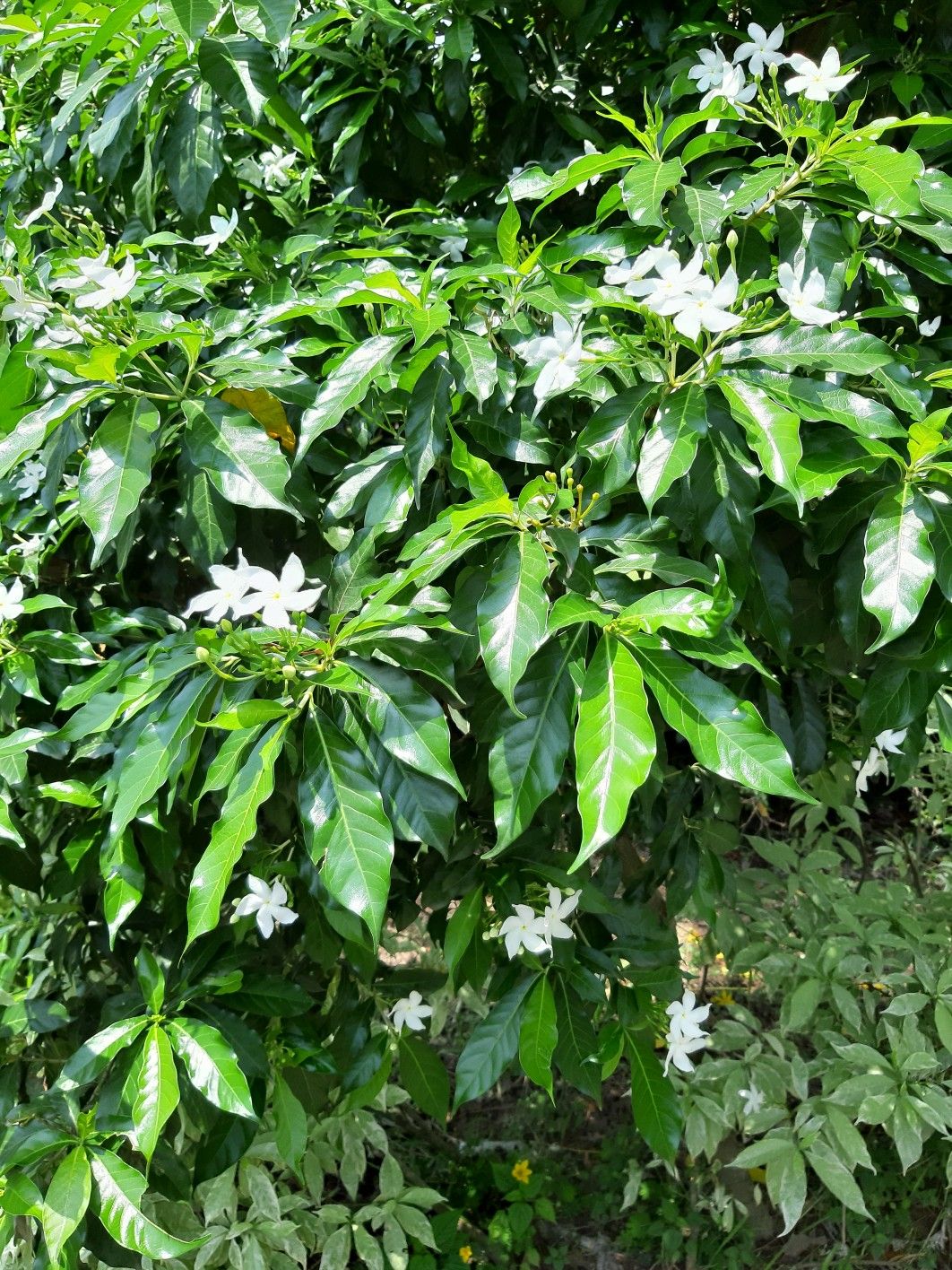

The Chandni Tree (Tabernaemontana divaricata), also known as the Pinwheel Jasmine or Carnation of India, is a beloved evergreen shrub that radiates beauty and serenity. With its star-shaped white flowers, rich green foliage, and pleasant fragran Read more
Trending
Trees for Corporates
Chandni Tree: The Moonlit Marvel Enchanting Gardens, Healing Lives, an
You may also like
Corporate Plantations
Chandni Tree Uses
The Chandni Tree is a multitasker, offering fragrant blooms for gardens, soothing remedies in traditional medicine, and a moonlit glow to brighten any landscape with natural elegance.
Chandni Tree Benefits
Beyond its captivating beauty, this tree purifies air, attracts pollinators, and brings a calming ambiance to gardens, making it a perfect blend of function and charm.
Chandni Tree Cultivation
Cultivating a Chandni Tree is as simple as planting a little moonlight in your garden. It loves tropical climates, sunlight, and a bit of attention for maximum bloom power.
Chandni Tree Flowers
These delicate, white, star-shaped blossoms not only enchant the eyes but also fill the air with a heavenly fragrance, earning their spot in floral royalty.
Chandni Tree in Traditional Medicine
Known for its cooling and anti-inflammatory properties, the Chandni Tree’s flowers and leaves are brewed into teas and balms for skin and respiratory health.
Chandni Tree Growth Conditions
This low-maintenance tree thrives in sunny, tropical climates and well-drained soil, offering gardeners beauty without the burden of high upkeep.
Chandni Tree in Landscaping
Its luminous white blooms and evergreen foliage make the Chandni Tree a landscaper’s favorite for adding timeless elegance to gardens, patios, and walkways.
Chandni Tree History
With roots in ancient Indian and Southeast Asian traditions, the Chandni Tree has been admired for centuries as a symbol of purity and serenity.
Chandni Tree Environmental Impact
This eco-friendly marvel supports pollinators, improves air quality, and enhances soil health, proving it’s as green as it is graceful.
Chandni Tree Leaves
These glossy green leaves are not just a backdrop to the flowers—they’re packed with medicinal properties and contribute to the tree’s overall lush appearance.
Chandni Tree Symbolism
Representing purity, peace, and romance, the Chandni Tree is a poetic favorite in literature, weddings, and spiritual practices across cultures.
Chandni Tree Pollinator Role
Its fragrant blooms attract bees, butterflies, and moths, ensuring that the tree not only enchants but also sustains ecosystems with its nectar-filled bounty.
FAQ
What is the Chandni Tree?
It’s a tropical treasure known for its star-shaped white flowers, soothing fragrance, and eco-friendly benefits, making it a dreamy addition to any garden.
Why is the Chandni Tree called a moonlit marvel?
Its glowing white blossoms shine under the moonlight, creating a serene, almost magical ambiance that enchants every onlooker.
What are the benefits of the Chandni Tree?
It purifies air, attracts pollinators, and provides medicinal value while adding unmatched elegance to gardens and landscapes.
Can I grow a Chandni Tree at home?
Absolutely! It thrives in sunny, tropical climates with well-drained soil and minimal fuss, making it a gardener’s delight.
What are the medicinal uses of the Chandni Tree?
Its flowers and leaves are used in traditional remedies for skin inflammation, respiratory issues, and calming the mind—a true healer.
What does the Chandni Tree symbolize?
It represents purity, peace, and romance, making it a favorite for weddings, poetry, and spiritual rituals worldwide.
Where does the Chandni Tree grow best?
It flourishes in tropical and subtropical regions, loving sunlight and warm temperatures, while being resilient enough for various soil types.
How does the Chandni Tree support ecosystems?
Its fragrant blooms attract bees, butterflies, and moths, playing a vital role in pollination and supporting local biodiversity.
What are the flowers of the Chandni Tree used for?
Apart from their decorative charm, they’re used in essential oils, teas, and remedies for their calming and anti-inflammatory properties.
How do you care for a Chandni Tree?
Provide ample sunlight, regular watering, and well-drained soil, and this low-maintenance tree will reward you with blooms and beauty year-round.
What is the history of the Chandni Tree?
With origins in India and Southeast Asia, the Chandni Tree has been revered for centuries in mythology, gardens, and traditional medicine.
Is the Chandni Tree good for landscaping?
Yes! Its luminous flowers and evergreen leaves make it ideal for enhancing gardens, patios, and urban spaces with a touch of elegance.
Most Popular
Connect with us
-
👥 Corporates
If you are looking for:
- 🌲 Tree Plantation Events
- 📊 CSR Projects
📧 corporate@growbilliontrees.com
📞 +91 9699723523
💬 +91 9325931304 WhatsApp (Only)
🕒 Mon - Sat | 10am - 7pm IST
-
🧩 Tree Plantation NGOs
If you are looking for:
- 💰 Financial Assistance
- 🤝 Operational Support
📧 support@growbilliontrees.com
📞 +91 9699723523
💬 +91 9325931304 WhatsApp (Only)
🕒 Mon - Sat | 10am - 7pm IST
-
🌼 Individuals
If you are looking for:
- 👥 Group Tree Plantation Drive
- 🌳 Bulk Tree Plantation
📞 +91 9699723523
💬 +91 9325931304 WhatsApp (Only)
🕒 Mon - Sat | 10am - 7pm IST





















